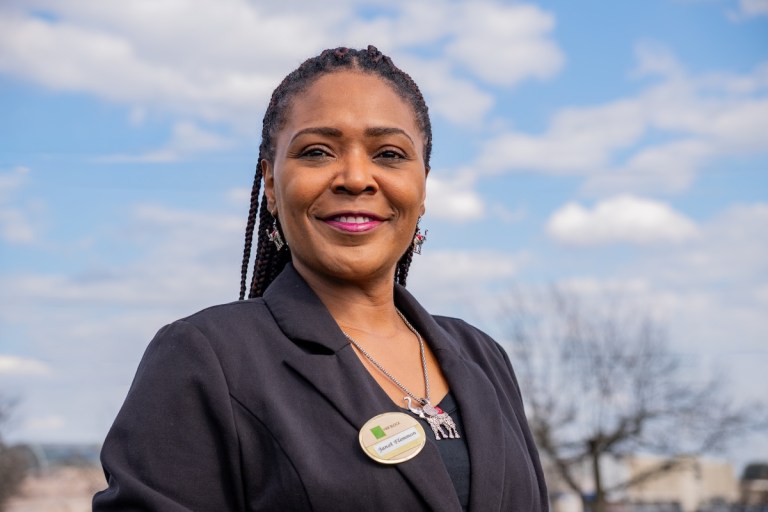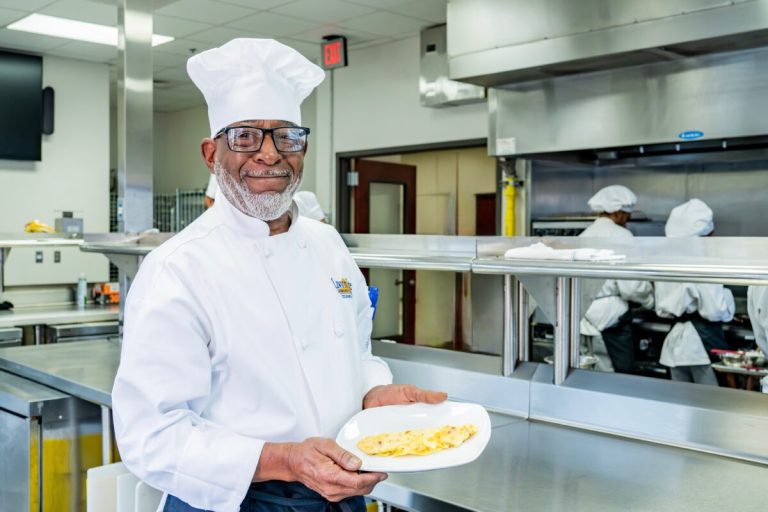Reviewed by: Patience Itson
How this peer-led program is revolutionizing mental health education in Pell City Schools
Reading time: 5 minutes
Sponsored

Youth mental health is a critical issue in our community, and the Community Foundation of Greater Birmingham is stepping up to make a difference. Through their support of Hope Squad—a peer-to-peer suicide prevention program—they’re helping local schools provide essential resources for students.
We spoke with Dionne Stevens, mental health coordinator for Pell City Schools, to learn how this program is making a powerful impact and how students are embracing its mission.
Tragedy struck Pell City Schools
During the 2022-2023 school year, Pell City Schools faced unbelievable tragedy—the suicide of two students.
As the community grieved these devastating losses, mental health coordinator Dionne Stevens began seeking ways to help students and faculty navigate this trauma and prevent something like this from happening again.
‘”Around the same time, the Community Foundation invited Dr. Gregory Hudnall to speak about Hope Squad. I had no idea what it was, but I was open to learning. I really liked what I heard, because it was a peer-to-peer system that centered around connection.
If you can see the bright side of a very tragic situation, it opened a lot of kind hearts and minds to maybe think about things a little differently and try something new.”
Dionne Stevens, Mental Health Coordinator, Pell City Schools
With Stevens at the helm, Pell City Intermediate and Middle Schools became inaugural Hope Squad schools in Alabama.
How Pell City’s Hope Squad works


Through the Hope Squad program, select students nominated by their peers learn how to recognize signs of distress and how to connect peers to help.
The idea is that kids struggling with mental health may not tell an adult or faculty member, but they might tell a friend.
Here’s how it works:
- Students nominate peers they consider trusted individuals, + a Hope Squad team is assembled.
- Hope Squad advisors meet regularly with Hope Squad students to teach them about mental health and topics such as anti-bullying + suicide prevention.
- Hope Squad students can openly discuss mental health with peers + refer struggling students to guidance counselors or other faculty for help.
“We’re not teaching students to be counselors; we’re teaching them to be a friend. Think of it almost as character education, where we teach them to be decent human beings and look out for one another.”
Dionne Stevens, Mental Health Coordinator, Pell City Schools
How Pell City’s Hope Squad peers are selected

Pell City students have embraced Hope Squad. (Pell City Schools)
To make an impact, Dionne knew the Hope Squad needed to represent the whole student body and its diverse groups.
According to Dionne, they asked students: If you had the worst thing possible happen to you today, look around, who would you tell? You can talk to that person. You know they wouldn’t talk bad about you, and they wouldn’t think poorly of you. Who’s that person?
“Then we took a group of kids that would not normally hang out or socialize and brought them together to work as a unit. They all learned they have something important in common: caring about others. It was so cool to see.”
Dionne Stevens, Mental Health Coordinator, Pell City Schools

Once the Hope Squad was assembled, they got to work with peer-lead projects like:
- Placing positive notes on lockers
- Gratitude cards for peers, teachers + staff
- Arts + crafts educating peers about topics like coping skills, naming emotions + communication
They even held a “Shred your Stress Day,” where kids wrote down the things in their lives that were causing them stress and worry. They then got to go through the physical act of shredding what they wrote.
According to Dionne, there was a line out the door of students wanting to participate.
Making an impact one step at a time



Hope Squad projects led by Pell City Middle School students. (Pell City Schools)
In 2022, suicide was the second leading cause of death for youth ages 10-14 in the United States.
With the introduction of the Hope Squad, the Community Foundation of Greater Birmingham is fighting to improve youth mental health by empowering students to support one another and prevent suicide through peer-led projects.
Here’s what one donor has to say about why they support the Community Foundation’s mental health initiatives.
“Mental health issues have affected many of my family members for generations. I, too, have struggled at different times in my life. For this reason, much of my philanthropy is directed towards helping others who also suffer but don’t have the means or access to get help.
I believe that all who live in our area deserve evidence-based treatments to overcome both mental health crises and also chronic conditions. The Community Foundation is a leader in bringing new mental health programs to our state and supporting start-up programs that can be scaled to treat many more folks.”
Anonymous donor
As we embrace the spirit of giving season, there’s no better time to support initiatives that make a difference, like Hope Squad.
Contact the Community Foundation of Greater Birmingham to learn more about how you can help bring vital mental health resources to schools and empower students to support one another.
Sponsored by:




